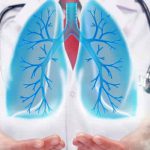A repetitive, yet very common and important topic of today’s time. Are you aware that the concept of having a balanced diet existed even before the online dietitian consultants and nutritionists came into the limelight? You know that our forefathers traditionally had their meals wherein they gave importance to balance all the nutritional elements and food groups, but over the years this ritual and lifestyle modified as generations passed. But the point is what exactly does this balanced Indian diet mean? If you look out for it in the dictionary – it shows that a diet consists of many different types of food which provide an ample amount of nutrients which are required for good health. But the point here is all about balance – so everything must be in balance, taking into consideration the importance of nutrients in the diet and the right quantity according to what our body needs.
Important Nutrients for Healthy Body
The important nutrients for a healthy body are:
- Proteins
- Carbohydrates
- Fats
- Fiber
A balanced diet is very important for the growth and development of the human body and to remain fit and active. A proper diet is responsible for providing the right amount of important nutrients from all foods that help to maintain good health.
- Proteins
- Importance of Proteins in your Diet
To begin with, around 30 to 35% of our diet should consist of protein. Proteins are the building elements of life. Each cell in the human body contains protein. Protein is required in your diet to help build muscles, helps to repair body cells, and build new ones. Protein is also needed in the body for muscle building, so when we consume a high protein diet, it converts fat into muscles which in turn increases the metabolism. It is also important for growth and development in teens, pregnant women, and children.
- Types of Proteins
There are mainly two types of proteins:
- Animal-based Proteins;
- Plant-based Proteins;
The main difference between plant proteins and animal proteins is their amino acid composition. Animal proteins are known as complete proteins, which means they contain all the 9 essential amino acids, whereas plant proteins are known as incomplete proteins, as they miss at least one essential amino acid. But if you are vegetarian you can eat multiple plant proteins to have a complete effect of proteins in your body.
Animal-based proteins include:
- Whey protein (dairy)
- Egg
- Beef
- Casein (dairy)
- Chicken
Plant-based proteins include:
- Brown Rice
- Chick Peas
- Peas
- Lentils and whole grains
- Nuts
- Source of Proteins
Some of the foods high in protein are:
- Dairy products- yoghurt (Greek yoghurt), milk, cheese
- Lean meats- lamb, beef, pork, kangaroo
- Seafood & fish- prawns, crab, mussels, oysters, lobsters, fish, clams
- You can also gain protein in eggs
- Beans & legumes- lentils, all beans, tofu, split peas
- Nuts and seeds- pine nuts, almonds, macadamias, cashews, sesame seeds, pumpkin seeds, hazelnuts, sunflower seeds
Some of the other protein foods are cereal & grain-based products, and can serve as an alternative to meat products.
- Requirement of proteins per day
It is a must to analyse the daily protein requirement we should consume, it’s quite simple, and you can also take an online dietitian consultation for the same. It is suggested to consume 1 gram per kg body weight. Protein is an important nutrient for muscle building, so when we consume a high protein diet, it converts fat into muscles which in turn increases metabolism. So what happens is you will eat a little less, burn more fats, and on top of it, you will stay strong.
- Benefits of taking Proteins in your Daily Diet
The benefits of proteins for including in your diet are as below:
- Reduces hunger levels and appetite
- Great for your bones
- Reduces desire for late-night cravings and snacking
- Increases fat burning and boosts metabolism
- Helps to manage weight and also helps with weight loss
- Protein also helps to build up muscle mass
- Protects your body from bacteria and viruses
Follow a high-protein diet but also choose your protein with lots of research and wisely. Avoid processed meats, there are also many health benefits of chickpeas, nuts, low-fat dairy products, and so on.
- Carbohydrates
- Importance of Carbohydrates in your Diet
Next on the list, are the carbohydrates– Carbs, as it is popularly called. Well, Carbs are the main source of energy, but off-late the trend seems that people have started cutting out on carbs entirely from their diet. Approximately half of the total amount of calories in a day should be carbs. Carbohydrates are found in foods like slices of bread, pasta, vegetables, fruits, and dairy products. The main function of carbohydrates is to make glucose with these foods in your body and also serves as the main energy source of your body.
- Types of Carbohydrates
There are two main types of carbohydrates: Simple Carbohydrates & Complex Carbohydrates.
- Simple Carbohydrates:
Simple carbohydrates are broken down easily and quickly by the body and can be used as energy. This type of carbs can be found in foods such as milk, milk products, and fruits. Also, in processed and refined sugars such as table sugar, candy, soft drinks, and syrups.
- Complex Carbohydrates:
Complex carbohydrates consist of sugar molecules tied together in complex and long chains. These carbs can be found in foods such as beans, peas, vegetables, and whole grains. Complex carbohydrates foods can provide fiber, minerals, and vitamins, important for the well-being of a human body.
- Source of Carbohydrates
Common foods with carbohydrates include:
- Fruits such as berries, mangoes, melons, bananas, apples, and oranges
- Grains- pasta, bread, noodles, cereals, rice, and crackers
- Sweets such as candy, cookies, desserts, and cakes
- Milk and yoghurt
- Juices, sport drinks, soft drinks, energy drinks, and regular sodas containing sugar
- Veggies such as corn, peas, potatoes
An individual should consume healthier sources of carbs such as whole grains, such as brown rice, oats, whole wheat chapatti, bajra, ragi, and jowar.
- Requirement of Carbohydrates per day
Talking about the daily requirements of carbohydrates there is no fixed amount of carbs that people should eat. The fixed amount should be determined by an online dietitian consultation as it depends on many factors such as sex, age, health, and also on whether you are trying to gain or lose weight. On average, an individual should consume up to 65% of their calories from carbs every day. The Daily Value for total carbs is 275g per day.
- Benefits of taking Carbohydrates in your Daily Diet
The benefits of carbohydrates are as follows:
- Helps to fuel your kidneys, heart muscles, brain, and central nervous system
- Helps with digestion
- Keeps your cholesterol level in balance
- Carbs are good for weight loss
- Helps to protect against diseases
- Fats
- Importance of Fats in your Diet
Another important component of food is Fats – frankly speaking, a little scary component for each one of us. For ages, we have been told that eating fat will add many inches to the waistline, and also lead to many health problems. But it’s important to understand whyd fats are an important component that helps to store energy.
- Types of Fats
The different types of fats are:
- Unsaturated Fats:
Well to understand simply – Unsaturated fats too are further divided into monounsaturated fats and polyunsaturated fats. These are healthier when compared to their saturated counterparts. Some examples of both types of unsaturated fats are as below:
- Nuts and seeds – like almonds, peanuts, sunflower seeds, eggs, etc.
- Seafood, fish, peanut oil, soya bean oil, etc.
- Saturated Fats:
This is considered as one of the types of unhealthy fat, the other being Trans-fat. Saturated fat is mostly present in foods obtained from animal sources like red meat, poultry, and full-fat dairy products. These are implied in the increase of bad cholesterol like VLDL, LDL, and triglycerides. Most fats that have a high percentage of saturated ones are solid at room temperatures and hence are referred to as solid fats. These include beef fat, pork fat, butter, coconut oil, etc.
- Eat foods rich in omega-3 fatty acids like walnuts, grounded flax seeds, soya bean oil, etc.
- Opt for olive oil
- Eat avocados and olives
- Source of Fats
The following foods are high in fat:
Saturated Fat Foods: eggs, butter, whole-milk dairy products such as cheese, milk, and ice-cream, red meat like beef, pork, and lamb, coconut, and palm oils.
Unsaturated Fat Foods: nuts, fish, and vegetables.
Monounsaturated fats: avocados, olives, hazelnuts, almonds, and other nuts.
Polyunsaturated fats: flaxseeds, walnuts, tuna, fish, and salmon. One type of polyunsaturated fat contains omega-3 fatty acids as its composition and is considered highly beneficial for health. It is present in fatty fish and some plants.
Polyunsaturated fats and monounsaturated fats are high-fat foods and are also known as the good fats as they are controlling your cholesterol, good for your heart, and overall health.
- Requirement of Fats per day
With all the low-fat and high-fat foods available, it is very important to the daily fat requirement for an individual. But figuring out how much fats to be included in our diet is a very confusing part, and it is always better to consult the best dietitian online to know this. The amount of fat one can eat depends on the calories required for weight loss or maintaining weight. It is also based on your eating habits and dietary needs. You can use a calculator to check the calories needed to maintain or lose weight, known as the daily calorie goal.
- Benefits of taking Fats in your Daily Diet
The benefits of fats in your diet are as below:
- Reduces the risk for heart disease
- Reduce cholesterol levels
- Supports healthy pregnancy
- Elevates your mood, reduces fatigue, and sharpens your memory
There are many benefits of avocados if included in your meals such as a healthy body, very nutritious food, loaded with fiber, lowers cholesterol, and much more.
- Fiber
- Importance of Fiber in your Diet
We have always heard about eating more Fiber; you should always include Fibre in your diet etc. But have you thought about why fibre is important? Dietary Fiber is also known as bulk or roughage; it consists of parts of plants, but they are not absorbed or digested by our body. So, like other food components such as carbs, proteins, and fats which are broken down easily and are absorbed well – Fiber is not digested by the body. The Fiber passes through the stomach, intestine, colon, and then out of your body.
- Types of Fiber
The different types of fiber are as below:
- Soluble fiber: The fiber that can dissolve in water and forms a gel-like material is known as soluble fiber. This type of fiber helps with maintaining glucose and blood cholesterol levels. You can find this fiber in peas, beans, oats, citrus fruits, apples, barley, and carrots.
- Insoluble fiber: Insoluble fiber is beneficial to individuals who suffer from irregular stools or constipation problems. Consuming insoluble fiber helps the movement of the food through your digestive system and increases the stool. The good sources of insoluble fiber are vegetables, beans, nuts, wheat bran, whole-wheat flour, potatoes, and cauliflower.
- Source of Fiber
The following foods are high fiber foods:
- Whole-grain products
- Vegetables and Fruits
- Beans, peas, and other legumes
- Seeds and Nuts
Even foods with soluble fiber such as barley, oats, beans are fiber-rich foods and can be very healthy for your body.
- Requirement of Fiber per day
The daily fiber requirements for adults should be around 25 to 30 grams a day from food and not from supplements. If you have a medical illness or weight-related issues you can take online consultation from the best dietitian and then increase or decrease your fiber intake.
- Benefits of taking Fiber in your Daily Diet
The benefits of a high fiber diet are as below:
- Lowers cholesterol levels
- Helps to control blood sugar levels
- Helps with weight loss and helps with achieving a healthy weight
- Reduces risk of heart diseases and cancer
- Maintain bowel movements and bowel health
To summarise here’s a glance at the healthy benefits of a balanced diet:
- Increases energy, strengthens your immune system and prevents weight gain.
- Provides the nutrients you need to avoid nutritional deficiencies.
- Prevents diseases such as diabetes, cancer, and heart disease.
- Following a special diet can reduce symptoms, and may help you better manage an illness or condition.
- Helps you to fight stress.
Last but not the least, few guidelines on healthy eating are as below:
- Do not skip any meals, especially breakfast.
- Remember to stop eating when you feel full.
- Drink plenty of water.
- Ensure that you eat at least 5 portions of vegetables and fruits each day.
- Limit the intake of refined sugar and caffeine.
- Use whole wheat flour instead of refined flour.
Balanced Diet is such a vast topic that cannot be just covered in a blog, or even in a few pages, so if at all you feel stuck or confused – it is suggested to consult a dietitian to help and simplify this for you. These days it is quite easy as you can opt for online consultation with a dietician. It’s as simple as it could be – just login and register on Mediflam and make an appointment with a dietitian and get all your doubts cleared and start living a healthy life.
Stay Safe, Stay Happy and Stay Healthy!!!!














